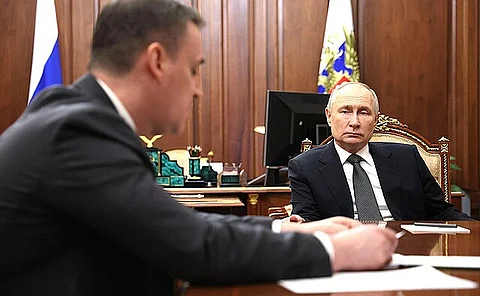

Born in Leningrad, now known as Saint Petersburg, Putin had an ordinary upbringing. He was the only surviving child of three. His lineage is unremarkable, except for one fact: his grandfather was a personal cook to Stalin and Lenin. Aside from that, his background was entirely ordinary, with a father who was conscripted into military service during the 1930s and 1940s and a mother who worked in a factory.
His upbringing and development were also unremarkable. He was considered smart, but not exceptionally so in school. He only joined the Communist Party when he attended university and enrolled in the Faculty of Law at Saint Petersburg State University, where he formed his first political connection with a university law professor, Anatoly Sobchak.
After completing his five-year course from 1970 to 1975, he graduated with a law degree and joined the KGB. It is not uncommon for law faculty graduates to become security officers as well. In Egypt, for example, a graduate of the Police Academy can also practice law after leaving the service, and a lawyer can also join the police.
His career is not well known or public, but at most, he could be described as a "middle manager." He was neither the head of a division nor a insignificant intelligence clerk. The man worked in counterintelligence and was posted to East Germany in Dresden. After the fall of the Berlin Wall, he returned to Leningrad, enrolled in a few more courses at the state university, and reconnected with his old friend, Anatoly Sobchak. He retired with the rank of lieutenant colonel, so his career in the security services can be considered "normal."
His friend, Anatoly Sobchak, became the mayor of Saint Petersburg. Considering it was the 1990s, and networking was essential for advancement in Russia, Putin was in luck. He was hired as part of Sobchak's political staff and left the service after the collapse of the USSR.
However, this was still Russia in the 90s, a time rife with corruption, shady deals, and business ventures. Almost everyone was involved in some capacity. The details of Putin's dealings in Saint Petersburg remain murky at best and cannot be definitively stated. Eventually, he climbed the political ladder in Saint Petersburg, eventually becoming the head of the Our Russia party in the city. But when Sobchak's political career ended in Saint Petersburg, Putin had to move on, to Moscow.
For the first time in Putin's career, he became an employee of the federal government, rather than a city authority or mayor. He was enrolled in the presidential staff of Boris Yeltsin, initially handling property related to foreign federal/Soviet assets, and later working directly under Yeltsin's staff. However, as fate would have it, Putin would return to his old career in intelligence. In 1998, he was appointed head of the FSB. It is noted that the FSB was considered weak and ineffective before his appointment, and it is reported that under his leadership, the organization's security was strengthened and brought in line.
Later, he would either leave such an impression on Yeltsin or somehow network enough and build strong relationships to convince Yeltsin that he should be appointed Prime Minister. Despite this, Putin remained loyal to Yeltsin, and Yeltsin still held significant influence, including appointing other ministers and overseeing the government portfolios.
And then, on the 31st of December, as Russians were celebrating the New Year, Yeltsin appeared on national TV and announced that he would be resigning. By Russian law, Putin would succeed him. This marked the beginning of his first term out of six, although he would not serve all six terms consecutively; that is his record.
Popular backing of Putin at the time was not in question. Russians would vote for him by a majority, supporting his law-and-order stance, his involvement in the Chechen wars, his economic reforms, and his relationships with the oligarchs, which were seen as beneficial to Russia. All of these aspects were viewed in a positive light, In order to shield himself from any political meddling, he agreed to grant total immunity to Boris Yeltsin's political dynasty. This demonstrated that he was not in direct conflict with other political dynasties unless they posed a direct threat to him or his power—a smart move by all accounts, and almost all elements in the Russian Federation agree on one thing regarding Putin—the man dragged Russia out of the chaos of the '90s. This is acknowledged by both his supporters and his opponents.